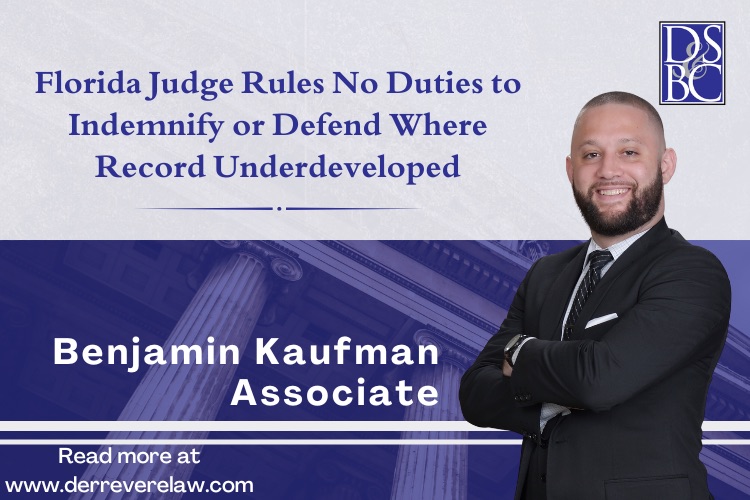Business Records or Inadmissible Hearsay? The Incident Report

Business records prepared in anticipation of litigation serve a crucial role in helping businesses prepare for potential legal challenges, protect their interests, and comply with legal requirements. These records are essential for evidence preservation, legal strategy development, and risk management in the face of future legal disputes or regulatory investigations. The primary purpose is to prepare the business for potential legal challenges by gathering relevant information, documents, and evidence. Documents that might be traditionally hearsay can be offered into evidence at trial if the proponent can meet the requirements as a Business Record Exception to Florida’s hearsay rule. “Florida’s business-records exception appears in section 90.803(6)(a), Florida Statutes (2004).” Yisrael v. State, 993 So. 2d 952, 956 (Fla. 2008). “To secure admissibility under this exception, the proponent must show that (1) the record was made at or near the time of the event; (2) was made by or from information transmitted by a person with knowledge; (3) was kept in the ordinary course of a regularly conducted business activity; and (4) that it was a regular practice of that business to make such a record.” Id. Additionally: [T]he proponent is required to present this information in one of three formats.
First, the proponent may take the traditional route, which requires that a records custodian take the stand and testify under oath to the predicate requirements. See § 90.803(6)(a), Fla. Stat. (2004). Second, the parties may stipulate to the admissibility of a document as a business record. Third and finally, since July 1, 2003, the proponent has been able to establish the business-records predicate through a certification or declaration that complies with sections 90.803(6)(c) and 90.902(11), Florida Statutes (2004).” Id. at 956-57.
The Business Record exception to the hearsay rule offers parties an “easy way,” to admit documents such as accounting statements, balance sheets, income statements, transaction logs,copies of contracts, agreements, and other legally binding documents related to business operations, partnerships, or transactions, emails, letters, memos, internal investigations, or incident reports. Via the testimony of a records’ custodian at trial, and so long as the proponent of such evidence lays the proper statutory predicate, a business record may be admitted at trial without the necessity of locating and producing the author of the statement itself.
By anticipating litigation, businesses can take steps to protect their interests, ensure compliance with legal requirements, and minimize potential liabilities. Incident reports are often created to gather and document information related to a loss. They help preserve important details, evidence, and witness statements about an occurrence, whether the litigation ensues or not. Incident reports provide detailed accounts of what happened, including dates, times, and – if we are really lucky – admissions by those responsible for the loss.
But is it really that simple? Can an attorney admit an incident report into evidence even if it qualifies under the Business Record Exception to the hearsay rule?
Incident reports are generally NOT admissible, even if they meet the requirements of Florida’s hearsay rule. See Stambor v. One Hundred Seventy-Second Collins Corp., 465 So.2d 1296, 1297 (Fla. 3d DCA 1985) (“[I]t is plain that the accident report which was prepared solely in anticipation of litigation was not admissible in evidence. It constituted, without dispute, hearsay evidence and was not admissible, as urged, under the business records exception to the hearsay rule”). Accident reports and incident reports “show lack of trustworthiness” because such a report is “made solely for litigation purposes to help defend against a claim which might arise from the accident.” Id. Also see e.g. Butcher v. Miami Elevator Co., Inc., 568 So.2d 61, 62 (Fla. 3d DCA 1990) (“damaging statements attributed to the plaintiff by unidentified sources–contained in three letter-reports prepared by a former employee of the condominium’s management company and sent to the insurer–as to how the accident occurred, were inadmissible hearsay”); King v. Auto Supply of Jupiter, Inc., 917 So.2d 1015, 1019 (Fla. 2006) (citing Stambor, supra, and stating, “[t]he facts there showed that the manager prepared the report solely for the purpose of defending the restaurant from a litigation claim by a patron who was injured while on the restaurant’s premises. Because it was not the regular practice of the restaurant’s business activity to make such a report, the court properly concluded the report was inadmissible hearsay for lack of trustworthiness”).
Despite an attorney’s best efforts, a Court can refuse to admit an Incident Report because of a lack of trustworthiness despite distinguishing the relevant case law. Whether or not such a report is prepared as the regular practice of a business activity is strictly scrutinized and interpreted by Courts, and judges are often reluctant to make even a questionable ruling that could result in an issue on appeal.
So, what is the bottom line? What is an attorney to do when faced with this unenviable position at trial? Preparation and planning are key to trial practice, and trials aren’t always won in the courtroom. A strong civil attorney must analyze incident reports at the beginning of litigation with the assumption that the report itself will be excluded. Therefore, the best witness to prepare in this regard is not a records’ custodian, but the author of the document. He or she will become the best witness to the incident – not the report about it.




